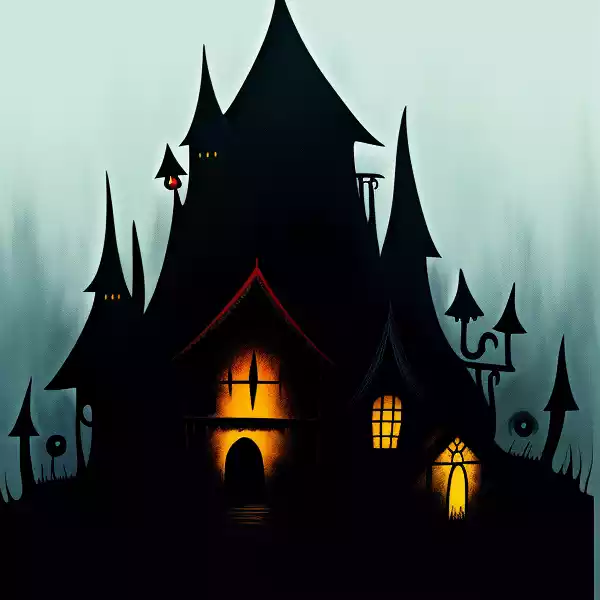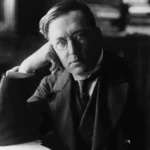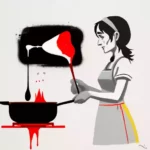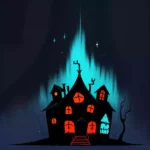 | |
Mr Humphreys and his Inheritance | |
| Author | M.R. James |
|---|---|
| Published |
1894
|
| Language | English |
| Nationality | British |
| Genre | Horror, Supernatural Fiction |
1894 Short Story
Mr Humphreys and his Inheritance
Mr Humphreys and his Inheritance is an English Horror, Supernatural Fiction short story by British writer M.R. James. It was first published in 1894.
Mr Humphreys and his Inheritance
by M.R. James
About fifteen years ago, on a date late in August or early in September, a train drew up at Wilsthorpe, a country station in Eastern England. Out of it stepped (with other passengers) a rather tall and reasonably good-looking young man, carrying a handbag and some papers tied up in a packet. He was expecting to be met, one would say, from the way in which he looked about him: and he was, as obviously, expected. The stationmaster ran forward a step or two, and then, seeming to recollect himself, turned and beckoned to a stout and consequential person with a short round beard who was scanning the train with some appearance of bewilderment. Mr. Cooper, he called out,Mr. Cooper, I think this is your gentleman; and then to the passenger who had just alighted, Mr. Humphreys, sir? Glad to bid you welcome to Wilsthorpe. Theres a cart from the Hall for your luggage, and heres Mr. Cooper, what I think you know. Mr. Cooper had hurried up, and now raised his hat and shook hands. Very pleased, Im sure, he said, to give the echo to Mr. Palmers kind words. I should have been the first to render expression to them but for the face not being familiar to me, Mr. Humphreys. May your residence among us be marked as a red-letter day, sir. Thank you very much, Mr. Cooper, said Humphreys, for your good wishes, and Mr. Palmer also. I do hope very much that this change ofertenancywhich you must all regret, I am surewill not be to the detriment of those with whom I shall be brought in contact. He stopped, feeling that the words were not fitting themselves together in the happiest way, and Mr. Cooper cut in, Oh, you may rest satisfied of that, Mr. Humphreys. Ill take it upon myself to assure you, sir, that a warm welcome awaits you on all sides. And as to any change of propriety turning out detrimental to the neighbourhood, well, your late uncle And here Mr. Cooper also stopped, possibly in obedience to an inner monitor, possibly because Mr. Palmer, clearing his throat loudly, asked Humphreys for his ticket. The two men left the little station, andat Humphreys suggestiondecided to walk to Mr. Coopers house, where luncheon was awaiting them.
The relation in which these personages stood to each other can be explained in a very few lines. Humphreys had inheritedquite unexpectedlya property from an uncle: neither the property nor the uncle had he ever seen. He was alone in the worlda man of good ability and kindly nature, whose employment in a Government office for the last four or five years had not gone far to fit him for the life of a country gentleman. He was studious and rather diffident, and had few out-of-door pursuits except golf and gardening. To-day he had come down for the first time to visit Wilsthorpe and confer with Mr. Cooper, the bailiff, as to the matters which needed immediate attention. It may be asked how this came to be his first visit? Ought he not in decency to have attended his uncles funeral? The answer is not far to seek: he had been abroad at the time of the death, and his address had not been at once procurable. So he had put off coming to Wilsthorpe till he heard that all things were ready for him. And now we find him arrived at Mr. Coopers comfortable house, facing the parsonage, and having just shaken hands with the smiling Mrs. and Miss Cooper.
During the minutes that preceded the announcement of luncheon the party settled themselves on elaborate chairs in the drawing-room, Humphreys, for his part, perspiring quietly in the consciousness that stock was being taken of him.
I was just saying to Mr. Humphreys, my dear, said Mr. Cooper, that I hope and trust that his residence among us here in Wilsthorpe will be marked as a red-letter day.
Yes, indeed, Im sure, said Mrs. Cooper heartily, and many, many of them.
Miss Cooper murmured words to the same effect, and Humphreys attempted a pleasantry about painting the whole calendar red, which, though greeted with shrill laughter, was evidently not fully understood. At this point they proceeded to luncheon.
Do you know this part of the country at all, Mr. Humphreys? said Mrs. Cooper, after a short interval. This was a better opening.
No, Im sorry to say I do not, said Humphreys. It seems very pleasant, what I could see of it coming down in the train.
Oh, it is a pleasant part. Really, I sometimes say I dont know a nicer district, for the country; and the people round, too: such a quantity always going on. But Im afraid youve come a little late for some of the better garden parties, Mr. Humphreys.
I suppose I have; dear me, what a pity! said Humphreys, with a gleam of relief; and then, feeling that something more could be got out of this topic, But after all, you see, Mrs. Cooper, even if I could have been here earlier, I should have been cut off from them, should I not? My poor uncles recent death, you know
Oh dear, Mr. Humphreys, to be sure; what a dreadful thing of me to say! (And Mr. and Miss Cooper seconded the proposition inarticulately.) What must you have thought? I am sorry: you must really forgive me.
Not at all, Mrs. Cooper, I assure you. I cant honestly assert that my uncles death was a great grief to me, for I had never seen him. All I meant was that I supposed I shouldnt be expected to take part for some little time in festivities of that kind.
Now, really its very kind of you to take it in that way, Mr. Humphreys, isnt it, George? And you do forgive me? But only fancy! You never saw poor old Mr. Wilson!
Never in my life; nor did I ever have a letter from him. But, by the way, you have something to forgive me for. Ive never thanked you, except by letter, for all the trouble youve taken to find people to look after me at the Hall.
Oh, Im sure that was nothing, Mr. Humphreys; but I really do think that youll find them give satisfaction. The man and his wife whom weve got for the butler and housekeeper weve known for a number of years: such a nice respectable couple, and Mr. Cooper, Im sure, can answer for the men in the stables and gardens.
Yes, Mr. Humphreys, theyre a good lot. The head gardeners the only one whos stopped on from Mr. Wilsons time. The major part of the employees, as you no doubt saw by the will, received legacies from the old gentleman and retired from their posts, and as the wife says, your housekeeper and butler are calculated to render you every satisfaction.
So everything, Mr. Humphreys, is ready for you to step in this very day, according to what I understood you to wish, said Mrs. Cooper. Everything, that is, except company, and there Im afraid youll find yourself quite at a standstill. Only we did understand it was your intention to move in at once. If not, Im sure you know we should have been only too pleased for you to stay here.
Im quite sure you would, Mrs. Cooper, and Im very grateful to you. But I thought I had really better make the plunge at once. Im accustomed to living alone, and there will be quite enough to occupy my eveningslooking over papers and books and so onfor some time to come, I thought if Mr. Cooper could spare the time this afternoon to go over the house and grounds with me
Certainly, certainly, Mr. Humphreys. My time is your own, up to any hour you please.
Till dinner-time, father, you mean, said Miss Cooper. Dont forget were going over to the Brasnetts. And have you got all the garden keys?
Are you a great gardener, Miss Cooper? said Mr. Humphreys. I wish you would tell me what Im to expect at the Hall.
Oh, I dont know about a great gardener, Mr. Humphreys: Im very fond of flowersbut the Hall garden might be made quite lovely, I often say. Its very old-fashioned as it is: and a great deal of shrubbery. Theres an old temple, besides, and a maze.
Really? Have you explored it ever?
No-o, said Miss Cooper, drawing in her lips and shaking her head. Ive often longed to try, but old Mr. Wilson always kept it locked. He wouldnt even let Lady Wardrop into it. (She lives near here, at Bentley, you know, and shes a great gardener, if you like.) Thats why I asked father if he had all the keys.
I see. Well, I must evidently look into that, and show you over it when Ive learnt the way.
Oh, thank you so much, Mr. Humphreys! Now I shall have the laugh of Miss Foster (thats our rectors daughter, you know; theyre away on their holiday nowsuch nice people). We always had a joke between us which should be the first to get into the maze.
I think the garden keys must be up at the house, said Mr. Cooper, who had been looking over a large bunch. There is a number there in the library. Now, Mr. Humphreys, if youre prepared, we might bid goodbye to these ladies and set forward on our little tour of exploration.
As they came out of Mr. Coopers front gate, Humphreys had to run the gauntletnot of an organized demonstration, but of a good deal of touching of hats and careful contemplation from the men and women who had gathered in somewhat unusual numbers in the village street. He had, further, to exchange some remarks with the wife of the lodge-keeper as they passed the park gates, and with the lodge-keeper himself, who was attending to the park road. I cannot, however, spare the time to report the progress fully. As they traversed the half-mile or so between the lodge and the house, Humphreys took occasion to ask his companion some question which brought up the topic of his late uncle, and it did not take long before Mr. Cooper was embarked upon a disquisition.
It is singular to think, as the wife was saying just now, that you should never have seen the old gentleman. And yetyou wont misunderstand me, Mr. Humphreys, I feel confident, when I say that in my opinion there would have been but little congeniality betwixt yourself and him. Not that I have a word to say in deprecationnot a single word. I can tell you what he was, said Mr. Cooper, pulling up suddenly and fixing Humphreys with his eye. Can tell you what he was in a nutshell, as the saying goes. He was a complete, thorough valentudinarian. That describes him to a T. Thats what he was, sir, a complete valentudinarian. No participation in what went on around him. I did venture, I think, to send you a few words of cutting from our local paper, which I took the occasion to contribute on his decease. If I recollect myself aright, such is very much the gist of them. But dont, Mr. Humphreys, continued Cooper, tapping him impressively on the chest,dont you run away with the impression that I wish to say aught but what is most creditablemost creditableof your respected uncle and my late employer. Upright, Mr. Humphreysopen as the day; liberal to all in his dealings. He had the heart to feel and the hand to accommodate. But there it was: there was the stumbling-blockhis unfortunate healthor, as I might more truly phrase it, his want of health.
Yes, poor man. Did he suffer from any special disorder before his last illnesswhich, I take it, was little more than old age?
Just that, Mr. Humphreysjust that. The flash flickering slowly away in the pan, said Cooper, with what he considered an appropriate gesture,the golden bowl gradually ceasing to vibrate. But as to your other question I should return a negative answer. General absence of vitality? yes: special complaint? no, unless you reckon a nasty cough he had with him. Why, here we are pretty much at the house. A handsome mansion, Mr. Humphreys, dont you consider?
It deserved the epithet, on the whole: but it was oddly proportioneda very tall red-brick house, with a plain parapet concealing the roof almost entirely. It gave the impression of a town house set down in the country; there was a basement, and a rather imposing flight of steps leading up to the front door. It seemed also, owing to its height, to desiderate wings, but there were none. The stables and other offices were concealed by trees. Humphreys guessed its probable date as 1770 or thereabouts.
The mature couple who had been engaged to act as butler and cook-housekeeper were waiting inside the front door, and opened it as their new master approached. Their name, Humphreys already knew, was Calton; of their appearance and manner he formed a favourable impression in the few minutes talk he had with them. It was agreed that he should go through the plate and the cellar next day with Mr. Calton, and that Mrs. C. should have a talk with him about linen, bedding, and so onwhat there was, and what there ought to be. Then he and Cooper, dismissing the Caltons for the present, began their view of the house. Its topography is not of importance to this story. The large rooms on the ground floor were satisfactory, especially the library, which was as large as the dining-room, and had three tall windows facing east. The bedroom prepared for Humphreys was immediately above it. There were many pleasant, and a few really interesting, old pictures. None of the furniture was new, and hardly any of the books were later than the seventies. After hearing of and seeing the few changes his uncle had made in the house, and contemplating a shiny portrait of him which adorned the drawing-room, Humphreys was forced to agree with Cooper that in all probability there would have been little to attract him in his predecessor. It made him rather sad that he could not be sorrydolebat se dolere non possefor the man who, whether with or without some feeling of kindliness towards his unknown nephew, had contributed so much to his well-being; for he felt that Wilsthorpe was a place in which he could be happy, and especially happy, it might be, in its library.
And now it was time to go over the garden: the empty stables could wait, and so could the laundry. So to the garden they addressed themselves, and it was soon evident that Miss Cooper had been right in thinking that there were possibilities. Also that Mr. Cooper had done well in keeping on the gardener. The deceased Mr. Wilson might not have, indeed plainly had not, been imbued with the latest views on gardening, but whatever had been done here had been done under the eye of a knowledgeable man, and the equipment and stock were excellent. Cooper was delighted with the pleasure Humphreys showed, and with the suggestions he let fall from time to time. I can see, he said, that youve found your meatear here, Mr. Humphreys: youll make this place a regular signosier before very many seasons have passed over our heads. I wish Clutterham had been herethats the head gardenerand here he would have been of course, as I told you, but for his sons being horse doover with a fever, poor fellow! I should like him to have heard how the place strikes you.
Yes, you told me he couldnt be here today, and I was very sorry to hear the reason, but it will be time enough tomorrow. What is that white building on the mound at the end of the grass ride? Is it the temple Miss Cooper mentioned?
That it is, Mr. Humphreysthe Temple of Friendship. Constructed of marble brought out of Italy for the purpose, by your late uncles grandfather. Would it interest you perhaps to take a turn there? You get a very sweet prospect of the park.
The general lines of the temple were those of the Sibyls Temple at Tivoli, helped out by a dome, only the whole was a good deal smaller. Some ancient sepulchral reliefs were built into the wall, and about it all was a pleasant flavour of the grand tour. Cooper produced the key, and with some difficulty opened the heavy door. Inside there was a handsome ceiling, but little furniture. Most of the floor was occupied by a pile of thick circular blocks of stone, each of which had a single letter deeply cut on its slightly convex upper surface. What is the meaning of these? Humphreys inquired.
Meaning? Well, all things, were told, have their purpose, Mr. Humphreys, and I suppose these blocks have had theirs as well as another. But what that purpose is or was [Mr. Cooper assumed a didactic attitude here], I, for one, should be at a loss to point out to you, sir. All I know of themand its summed up in a very few wordsis just this: that theyre stated to have been removed by your late uncle, at a period before I entered on the scene, from the maze. That, Mr. Humphreys, is
Oh, the maze! exclaimed Humphreys. Id forgotten that: we must have a look at it. Where is it?
Cooper drew him to the door of the temple, and pointed with his stick. Guide your eye, he said (somewhat in the manner of the Second Elder in Handels Susanna
Far to the west direct your straining eyes Where yon tall holm-tree rises to the skies)
Guide your eye by my stick here, and follow out the line directly opposite to the spot where were standing now, and Ill engage, Mr. Humphreys, that youll catch the archway over the entrance. Youll see it just at the end of the walk answering to the one that leads up to this very building. Did you think of going there at once? because if that be the case, I must go to the house and procure the key. If you would walk on there, Ill rejoin you in a few moments time.
Accordingly Humphreys strolled down the ride leading to the temple, past the garden-front of the house, and up the turfy approach to the archway which Cooper had pointed out to him. He was surprised to find that the whole maze was surrounded by a high wall, and that the archway was provided with a padlocked iron gate; but then he remembered that Miss Cooper had spoken of his uncles objection to letting anyone enter this part of the garden. He was now at the gate, and still Cooper came not. For a few minutes he occupied himself in reading the motto cut over the entrance, Secretum meum mihi et filiis domus meae, and in trying to recollect the source of it. Then he became impatient and considered the possibility of scaling the wall. This was clearly not worth while; it might have been done if he had been wearing an older suit: or could the padlocka very old onebe forced? No, apparently not: and yet, as he gave a final irritated kick at the gate, something gave way, and the lock fell at his feet. He pushed the gate open inconveniencing a number of nettles as he did so, and stepped into the enclosure.
It was a yew maze, of circular form, and the hedges, long untrimmed, had grown out and upwards to a most unorthodox breadth and height. The walks, too, were next door to impassable. Only by entirely disregarding scratches, nettle-stings, and wet, could Humphreys force his way along them; but at any rate this condition of things, he reflected, would make it easier for him to find his way out again, for he left a very visible track. So far as he could remember, he had never been in a maze before, nor did it seem to him now that he had missed much. The dankness and darkness, and smell of crushed goosegrass and nettles were anything but cheerful. Still, it did not seem to be a very intricate specimen of its kind. Here he was (by the way, was that Cooper arrived at last? No!) very nearly at the heart of it, without having taken much thought as to what path he was following. Ah! there at last was the centre, easily gained. And there was something to reward him. His first impression was that the central ornament was a sundial; but when he had switched away some portion of the thick growth of brambles and bindweed that had formed over it, he saw that it was a less ordinary decoration. A stone column about four feet high, and on the top of it a metal globecopper, to judge by the green patinaengraved, and finely engraved too, with figures in outline, and letters. That was what Humphreys saw, and a brief glance at the figures convinced him that it was one of those mysterious things called celestial globes, from which, one would suppose, no one ever yet derived any information about the heavens. However, it was too darkat least in the mazefor him to examine this curiosity at all closely, and besides, he now heard Coopers voice, and sounds as of an elephant in the jungle. Humphreys called to him to follow the track he had beaten out, and soon Cooper emerged panting into the central circle. He was full of apologies for his delay; he had not been able, after all, to find the key. But there! he said, youve penetrated into the heart of the mystery unaided and unannealed, as the saying goes. Well! I suppose its a matter of thirty to forty years since any human foot has trod these precincts. Certain it is that Ive never set foot in them before. Well, well! whats the old proverb about angels fearing to tread? Its proved true once again in this case. Humphreys acquaintance with Cooper, though it had been short, was sufficient to assure him that there was no guile in this allusion, and he forbore the obvious remark, merely suggesting that it was fully time to get back to the house for a late cup of tea, and to release Cooper for his evening engagement. They left the maze accordingly, experiencing well-nigh the same ease in retracing their path as they had in coming in.
Have you any idea, Humphreys asked, as they went towards the house, why my uncle kept that place so carefully locked?
Cooper pulled up, and Humphreys felt that he must be on the brink of a revelation.
I should merely be deceiving you, Mr. Humphreys, and that to no good purpose, if I laid claim to possess any information whatsoever on that topic. When I first entered upon my duties here, some eighteen years back, that maze was word for word in the condition you see it now, and the one and only occasion on which the question ever arose within my knowledge was that of which my girl made mention in your hearing. Lady WardropIve not a word to say against herwrote applying for admission to the maze. Your uncle showed me the notea most civil noteeverything that could be expected from such a quarter. Cooper, he said, I wish youd reply to that note on my behalf. Certainly Mr. Wilson, I said, for I was quite inured to acting as his secretary, what answer shall I return to it? Well, he said, give Lady Wardrop my compliments, and tell her that if ever that portion of the grounds is taken in hand I shall be happy to give her the first opportunity of viewing it, but that it has been shut up now for a number of years, and I shall be grateful to her if she kindly wont press the matter. That, Mr. Humphreys, was your good uncles last word on the subject, and I dont think I can add anything to it. Unless, added Cooper, after a pause, it might be just this: that, so far as I could form a judgement, he had a dislike (as people often will for one reason or another) to the memory of his grandfather, who, as I mentioned to you, had that maze laid out. A man of peculiar teenets, Mr. Humphreys, and a great traveller. Youll have the opportunity, on the coming Sabbath, of seeing the tablet to him in our little parish church; put up it was some long time after his death.
Oh! I should have expected a man who had such a taste for building to have designed a mausoleum for himself.
Well, Ive never noticed anything of the kind you mention; and, in fact, come to think of it, Im not at all sure that his resting-place is within our boundaries at all: that he lays in the vault Im pretty confident is not the case. Curious now that I shouldnt be in a position to inform you on that heading! Still, after all, we cant say, can we, Mr. Humphreys, that its a point of crucial importance where the pore mortal coils are bestowed?
At this point they entered the house, and Coopers speculations were interrupted.
Tea was laid in the library, where Mr. Cooper fell upon subjects appropriate to the scene. A fine collection of books! One of the finest, Ive understood from connoisseurs, in this part of the country; splendid plates, too, in some of these works. I recollect your uncle showing me one with views of foreign townsmost absorbing it was: got up in first-rate style. And another all done by hand, with the ink as fresh as if it had been laid on yesterday, and yet, he told me, it was the work of some old monk hundreds of years back. Ive always taken a keen interest in literature myself. Hardly anything to my mind can compare with a good hours reading after a hard days work; far better than wasting the whole evening at a friends houseand that reminds me, to be sure. I shall be getting into trouble with the wife if I dont make the best of my way home and get ready to squander away one of these same evenings! I must be off, Mr. Humphreys.
And that reminds me, said Humphreys, if Im to show Miss Cooper the maze tomorrow we must have it cleared out a bit. Could you say a word about that to the proper person?
Why, to be sure. A couple of men with scythes could cut out a track tomorrow morning. Ill leave word as I pass the lodge, and Ill tell them, whatll save you the trouble, perhaps, Mr. Humphreys, of having to go up and extract them yourself: that theyd better have some sticks or a tape to mark out their way with as they go on.
A very good idea! Yes, do that; and Ill expect Mrs. and Miss Cooper in the afternoon, and yourself about half-past ten in the morning.
Itll be a pleasure, Im sure, both to them and to myself, Mr. Humphreys. Good night!
Humphreys dined at eight. But for the fact that it was his first evening, and that Calton was evidently inclined for occasional conversation, he would have finished the novel he had bought for his journey. As it was, he had to listen and reply to some of Caltons impressions of the neighbourhood and the season: the latter, it appeared, was seasonable, and the former had changed considerablyand not altogether for the worsesince Caltons boyhood (which had been spent there). The village shop in particular had greatly improved since the year 1870. It was now possible to procure there pretty much anything you liked in reason: which was a conveniency, because suppose anythink was required of a suddent (and he had known such things before now), he (Calton) could step down there (supposing the shop to be still open), and order it in, without he borrered it of the Rectory, whereas in earlier days it would have been useless to pursue such a course in respect of anything but candles, or soap, or treacle, or perhaps a penny childs picture-book, and nine times out of ten itd be something more in the nature of a bottle of whisky youd be requiring; leastwaysOn the whole Humphreys thought he would be prepared with a book in future.
The library was the obvious place for the after-dinner hours. Candle in hand and pipe in mouth, he moved round the room for some time, taking stock of the titles of the books. He had all the predisposition to take interest in an old library, and there was every opportunity for him here to make systematic acquaintance with one, for he had learned from Cooper that there was no catalogue save the very superficial one made for purposes of probate. The drawing up of a catalogue raisonné would be a delicious occupation for winter. There were probably treasures to be found, too: even manuscripts, if Cooper might be trusted.
As he pursued his round the sense came upon him (as it does upon most of us in similar places) of the extreme unreadableness of a great portion of the collection. Editions of Classics and Fathers, and Picarts Religious Ceremonies, and the Harleian Miscellany, I suppose are all very well, but who is ever going to read Tostatus Abulensis, or Pineda on Job, or a book like this? He picked out a small quarto, loose in the binding, and from which the lettered label had fallen off; and observing that coffee was waiting for him, retired to a chair. Eventually he opened the book. It will be observed that his condemnation of it rested wholly on external grounds. For all he knew it might have been a collection of unique plays, but undeniably the outside was blank and forbidding. As a matter of fact, it was a collection of sermons or meditations, and mutilated at that, for the first sheet was gone. It seemed to belong to the latter end of the seventeenth century. He turned over the pages till his eye was caught by a marginal note: A Parable of this Unhappy Condition, and he thought he would see what aptitudes the author might have for imaginative composition. I have heard or read, so ran the passage, whether in the way of Parable or true Relation I leave my Reader to judge, of a Man who, like Theseus, in the Attick Tale, should adventure himself, into a Labyrinth or Maze: and such an one indeed as was not laid out in the Fashion of our Topiary artists of this Age, but of a wide compass, in which, moreover, such unknown Pitfalls and Snares, nay, such ill-omened Inhabitants were commonly thought to lurk as could only be encountered at the Hazard of ones very life. Now you may be sure that in such a Case the Disswasions of Friends were not wanting. Consider of such-an-one says a Brother how he went the way you wot of, and was never seen more. Or of such another says the Mother that adventured himself but a little way in, and from that day forth is so troubled in his Wits that he cannot tell what he saw, nor hath passed one good Night. And have you never heard cries a Neighbour of what Faces have been seen to look out over the Palisadoes and betwixt the Bars of the Gate? But all would not do: the Man was set upon his Purpose: for it seems it was the common fireside Talk of that Country that at the Heart and Centre of this Labyrinth there was a Jewel of such Price and Rarity that would enrich the Finder thereof for his life: and this should be his by right that could persever to come at it. What then? Quid multa? The Adventurer passd the Gates, and for a whole days space his Friends without had no news of him, except it might be by some indistinct Cries heard afar off in the Night, such as made them turn in their restless Beds and sweat for very Fear, not doubting but that their Son and Brother had put one more to the Catalogue of those unfortunates that had sufferd shipwreck on that Voyage. So the next day they went with weeping Tears to the Clark of the Parish to order the Bell to be tolld. And their Way took them hard by the gate of the Labyrinth: which they would have hastened by, from the Horrour they had of it, but that they caught sight of a sudden of a Mans Body lying in the Roadway, and going up to it (with what Anticipations may be easily figured) found it to be him whom they reckoned as lost: and not dead, though he were in a Swound most like Death. They then, who had gone forth as Mourners came back rejoycing, and set to by all means to revive their Prodigal. Who, being come to himself, and hearing of their Anxieties and their Errand of that Morning, Ay says he you may as well finish what you were about: for, for all I have brought back the Jewel (which he shewd them, and twas indeed a rare Piece) I have brought back that with it that will leave me neither Rest at Night nor Pleasure by Day. Whereupon they were instant with him to learn his Meaning, and where his Company should be that went so sore against his Stomach. O says he tis here in my Breast: I cannot flee from it, do what I may. So it needed no Wizard to help them to a guess that it was the Recollection of what he had seen that troubled him so wonderfully. But they could get no more of him for a long Time but by Fits and Starts. However at long and at last they made shift to collect somewhat of this kind: that at first, while the Sun was bright, he went merrily on, and without any Difficulty reached the Heart of the Labyrinth and got the Jewel, and so set out on his way back rejoycing: but as the Night fell, wherein all the Beasts of the Forest do move, he begun to be sensible of some Creature keeping Pace with him and, as he thought, peering and looking upon him from the next Alley to that he was in; and that when he should stop, this Companion should stop also, which put him in some Disorder of his Spirits. And, indeed, as the Darkness increasd, it seemed to him that there was more than one, and, it might be, even a whole Band of such Followers: at least so he judgd by the Rustling and Cracking that they kept among the Thickets; besides that there would be at a Time







